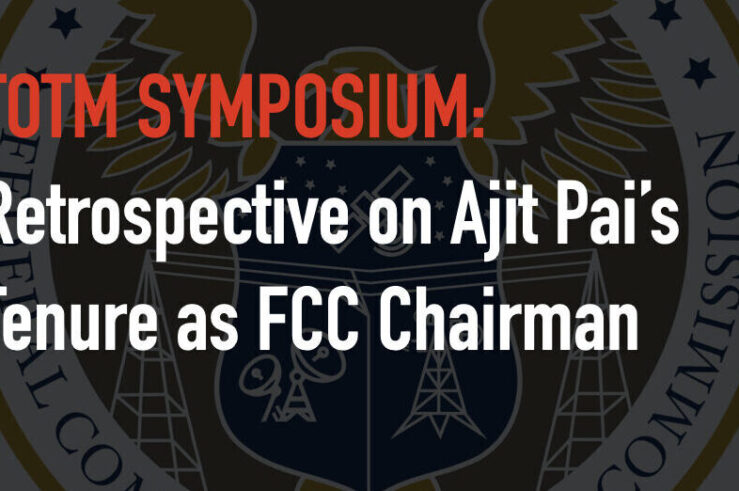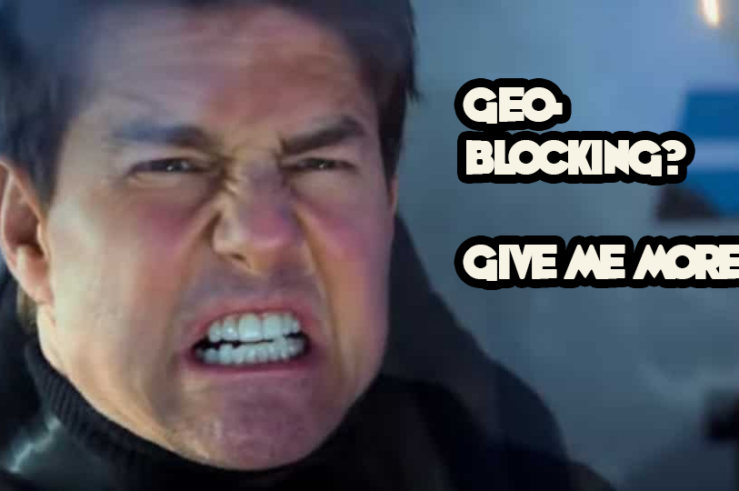Showing results for: “digital markets act”
Government by youth gangs
Aristides N. Hatzis (University of Athens) has a fairly new blog, and it has an interesting post by Russell S. Sobel on Sobel’s and Brian Osaba’s article Youth Gangs as Pseudo-Governments. Here’s the abstract: We hypothesize the failure of government to protect the rights of individuals from violence committed by youths has led to the ... Government by youth gangs
Symposium on Big Tech and the Digital Economy: The Moligopoly Scenario
Confirmed Participants As in the past (see examples of previous TOTM blog symposia here), we’ve lined up an outstanding and diverse group of scholars to discuss these issues, including: Kelly Fayne, Antitrust Associate, Latham & Watkins Shane Greenstein, Professor of Business Administration; Co-chair of the HBS Digital Initiative, Harvard Business School Peter Klein, Professor of ... Symposium on Big Tech and the Digital Economy: The Moligopoly Scenario
How ETNO’s ‘Fair Share’ Proposal Threatens Europe’s Digital Future:
The digital transformation of Europe—and, indeed, the world—has been a defining theme of the 21st century. As with all significant shifts, it has also come with its share of challenges, opportunities, and controversies. One such controversy that has recently reemerged is the so-called “fair share” proposal for network traffic—championed most recently in a statement from ... How ETNO’s ‘Fair Share’ Proposal Threatens Europe’s Digital Future:
Chairman Pai Symposium: Wrap-Up and Thoughts for the Future FCC
One of the themes that has run throughout this symposium has been that, throughout his tenure as both a commissioner and as chairman, Ajit Pai has brought consistency and careful analysis to the Federal Communications Commission (McDowell, Wright). The reflections offered by the various authors in this symposium make one thing clear: the next administration ... Chairman Pai Symposium: Wrap-Up and Thoughts for the Future FCC
State-Mandated Digital Book Licenses Offend the Constitution and Undermine Free-Market Principles
Various states recently have enacted legislation that requires authors, publishers, and other copyright holders to license to lending libraries digital texts, including e-books and audio books. These laws violate the Constitution’s conferral on Congress of the exclusive authority to set national copyright law. Furthermore, as a policy matter, they offend free-market principles. The laws interfere ... State-Mandated Digital Book Licenses Offend the Constitution and Undermine Free-Market Principles
Geo-Blocking: What is it Good For… A Surprising Amount, Actually.
The European Court of Justice issued its long-awaited ruling Dec. 9 in the Groupe Canal+ case. The case centered on licensing agreements in which Paramount Pictures granted absolute territorial exclusivity to several European broadcasters, including Canal+. Back in 2015, the European Commission charged six U.S. film studios, including Paramount, as well as British broadcaster Sky ... Geo-Blocking: What is it Good For… A Surprising Amount, Actually.
The Fox and Shepherd Problem
I spent a lot of time with this topic when writing a book (How the Internet Became Commercial, 2015, Princeton Press). If I have something unique to add to a review of Petit’s book, it comes from the role Microsoft played in the events in my book. Many commentators have speculated on what precise charges ... The Fox and Shepherd Problem
Wrapping up Round One of the FTC UMC Symposium
Over the past three weeks, we have shared contributions from more than a dozen antitrust commentators—including academics, practitioners, students, and a commissioner of the Federal Trade Commission—discussing the potential for the FTC to develop substantive rules using its unfair methods of competition (UMC) authority. This post offers a recap of where we have been so ... Wrapping up Round One of the FTC UMC Symposium
FTC v. Illumina/Grail – A Rare FTC Merger Victory? (Actually, a Loss for Consumers)
Although it was overshadowed by the Federal Trade Commission (FTC) and U.S. Justice Department’s (DOJ) year-end release of the 2023 merger guidelines, one should also note the abrupt end of the FTC v. Illumina/Grail saga. The saga finished with the FTC’s Dec. 18 press release announcing that Illumina decided on Dec.17 to divest itself of ... FTC v. Illumina/Grail – A Rare FTC Merger Victory? (Actually, a Loss for Consumers)
Should Congress Repeal the McCarran-Ferguson Act?
While I’m focused on health care and antitrust, the question above is the subject of a conference at the Harvard Law School Petrie?Flom Center which looks like it has a great lineup. The conference is November 12th. Here is the conference description (HT: Larry Solum). Petrie-Flom Center for Health Law Policy, Biotechnology and Bioethics at ... Should Congress Repeal the McCarran-Ferguson Act?
Antitrust Activity and Distinguishing Influence from Quality
From the Economic Times: The European Union’s antitrust agency is becoming more influential just as its US counterparts have grown more cautious and inactive, experts say. The European Commission’s recent success in forcing Microsoft to carry out antitrust sanctions underscores the differences, and academic researchers say the US is also hanging back in merger challenges. ... Antitrust Activity and Distinguishing Influence from Quality
North Dakota Publicly Traded Corporation Act
The governor of North Dakota recently signed into law the North Dakota Publicly Traded Corporation Act (ht: Broc Romanek). The Act resembles a shareholder activist wish list including majority voting for the election of directors, elimination of staggered boards, advisory shareholder votes on executive compensation, shareholder proxy access, proxy contest reimbursement, poison pill restrictions, etc. ... North Dakota Publicly Traded Corporation Act










